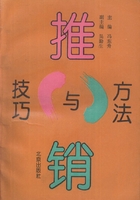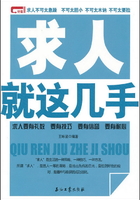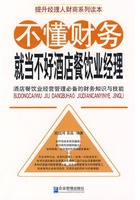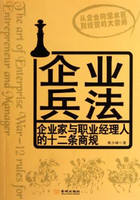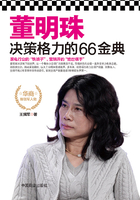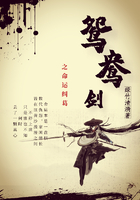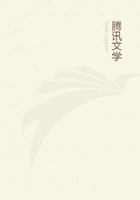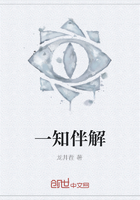In Table 1.1, for simplicity, we assume that both marketing ability and personal wealth have two-point distributions: for any individual, θ takes one of two values,θH(high)or θL(low); similarly, WO takes one of two values, WOH(rich)or WOL(poor). Thus there exist four types of individuals, denoted by E, C, M and Z respectively. Type E individiuals are rich in both marketing ability and personal wealth:(θH, WOH); Type C are rich in personal wealth but short of marketing ability:(θL, WOH); Type M have high marketing ability but low personal wealth:(θH, WOL); Type Z are poor both in marketing ability and personal assets:(θL, WOL). If all transactions between individuals take place through spot-markets, each individual has to work as an individual businessman in deal ing with both marketing and producing. Taking Type Z as the yard-stick, C has an advantage in capital factor, M’s advantage is in markeing ability, and E has advantages in both capital and marketing ability. Obviously it may be profitable for different types of individuals to cooperate by forming a“firm”in which some individuals are specialized in marketing activities while others are specialized in producing activities. Two problems associated with the firm are: first, how to allocate the marketing function and producing function to different members; second, how to resolve the agency problem by assigning principalship. What we are going to demonstrate is that, as the firm substiutes for the spot-market,(i)Type E become entrepreneurs by doing marketing, monitoring producing-members, and claiming the residual;(ii)Type M become managers by doing marketing, monitoring producing-members but being monitored by Type C, and sharing some risk with Type C;(iii)Type C become capitalists by selecting and monitoring managers, and bearing risks; Type C and Type M together become joint-entrepreneurs; and(iv)Type Z become workers by specializing in producing, and receiving a fixed return. We also show that bargaining power of each type depends on the joint distribution of θ and WO in population. For instance, an increase in the proportion of Type C but will disadvantage Type C but advantage Type M(managers)and probably Type Z(workers).
The thesis is organized as follows. In Chapter one, we give a brief description of the main ideas of the thesis and present a critical review of the existing theories of the firm(including the contractual theory, the entrepreneurial theory, and the managerial theory). Chapters 2-4 are the body of the thesis addressing how principalship(residual claim and authority)is assigned among the different members of the firm. Our demonstration consists of three major steps. In Chapter 2(the first step), we demonstrate why principalship should be assigned to the marketing member rather than to the producing member to maximize total welfare(equivalently, to minimize agency costs). In so doing, we argue that differences of marketing ability between individuals are the original rationale for the occurrence of the firm; we identify marketing with Coase’s“discovering the relevant prices”but focus on aspects ignored by Coase. We make a distinction between the self-monitored incentive and the being monitored incentive. We argue that there is a trade-off between the self-monitored incentive and the being-monitored incentive associated with assignment of principalship, and it is optimal for the marketing member to be the principal because such a contractual arrangement can guarantee that total welfare are maximized. In Chapter 3(the second step), a hidden information model is used to show why priority in being entrepreneurs is given to capitalists. In so doing, we focus on how the capital endowment of a would-be entrepreneur can function as a signal of his marketing ability. Specifically we show that the individual critical ability for being an entrepreneur is increasing with his personal wealth, unless the individual’s personal wealth exceeds a certain level. Under the assumption that marketing ability is not observable(or not costlessly observable), it is shown that priority in being an entrepreneur(marketing member)and / or the right of selecting the person to undertake marketing should be given to capitalists because such a contractual arrangement can ensure that only qualified candidates win the competition for being entrepreneurs(or managers). This conclusion implies that imperfect capital markets may be socially optimal. In Chapter 4 (the third step), based on the arguments given in Chapters 2 and 3, a general equilibrium entrepreneurial model of the firm is set up; the main properties of the equilibrium will be derived; and the partition of the population into entrepreneurs, manager, pure capitalists and workers will be identified. We show that in equilibrium,(a)individuals with high ability, high personal wealth and low risk-aversion become entrepreneurs,(b)individuals with low ability, low personal wealth and high risk aversion become workers,(c)individuals with high ability but low personal wealth become managers hired by capitalists, and(d)individuals with low ability but high personal wealth become“pure”capitalists to hire managers. Chapter 5 concludes the thesis and directs attention to some promising aspects for our future research.
One of the implications of our hypothesis is that because advantages of capital over labour are associated with information-cost saving, we may predict that these advantages will be diminishing as other signals become available. Education is one such signal, which may reveal some information on marketing ability and therefore help some MBA-holders to become managers. In the extreme case, if information is perfect, capital would become a pure production factor and would lose all its advantages over labour. In fact, in this case nobody has any advantages over others in marketing, and thereafter the firm becomes redundant in Coase’s sense. However, if we believe that marketing is some kind of innate ability which is not entirely educable, capital will still enjoy advantages over labour in signaling information about a person‘s marketing ability.

